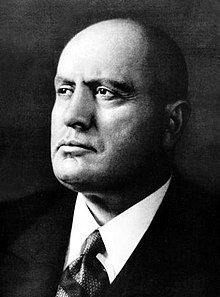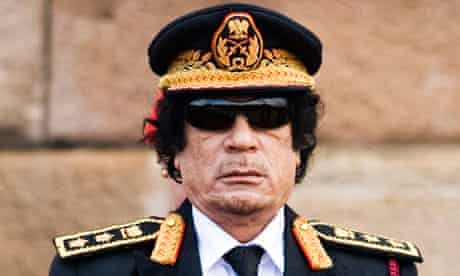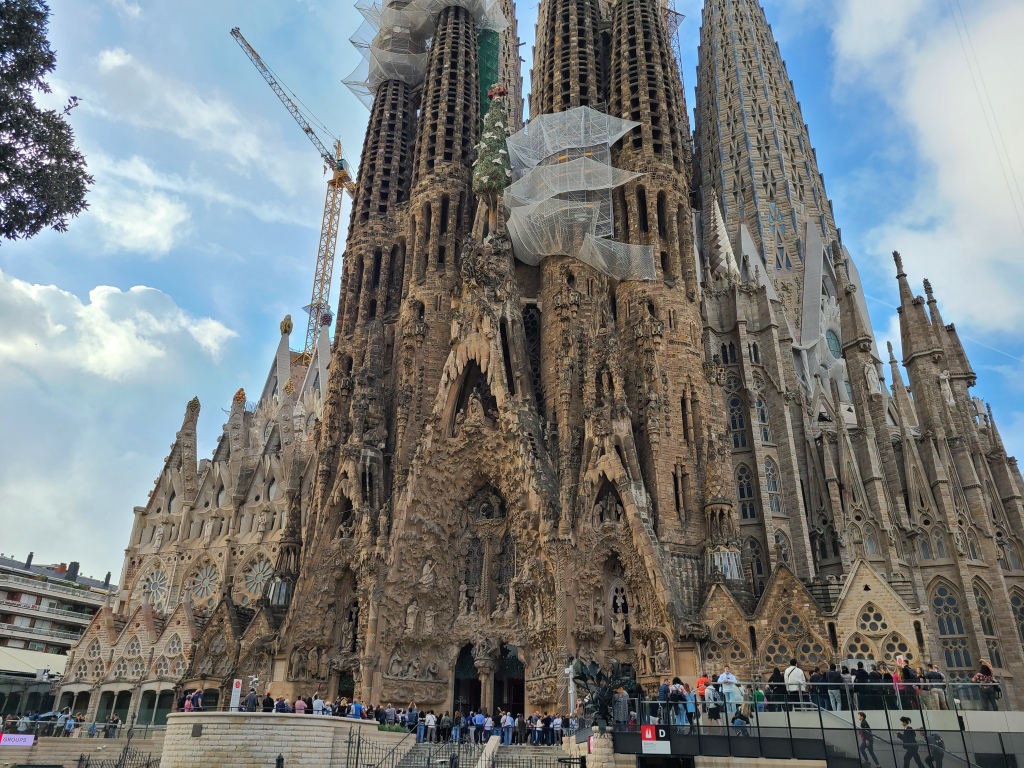
Recently I read Anne Applebaum’s book THE TWILIGHT OF DEMOCRACY which laid out where the United States stood in a world that seems to trend toward autocratic rule. To say the least her thesis which depicts how American democracy has gone so terribly wrong is scary and alarming. It appears that there is a “strongman playbook” that these autocratic wannabes follow which is the main focus of Ruth Ben-Ghiat’s new work, STRONGMEN: MUSSOLINI TO THE PRESENT published before the attack on the capitol on January 6, 2021. The books appearance is a further warning of what might occur as Donald Trump continues to stir the pot about his election loss and the dangers should he return to the White House in 2024. Ben-Ghiat has spent her career ruminating about how authoritarians manipulate the truth to gain power and her book is very troubling as she lays out the “strongmen’s playbook” highlighting strategies and techniques employed by the likes of Benito Mussolini, Muammar Gaddafi, Augusto Pinochet, Mobutu Sese Sebo, and Vladimir Putin, among others to seize power for as long as they desired.
Last November the American people overcame the misinformation, lies, and conspiracy theories put forth by Donald Trump and his followers to seemingly reject someone who consistently tried to employ the “playbook” but the failure of the Republicans to support truth allowed Trump to escape an impeachment conviction. The result is that the American people must confront and cope with a somewhat resurgent Trump who threatens to run again for president in 2024 and if it comes to pass reach down into his toolbox of the authoritarian playbook to regain the White House. This proposition may make the Republican base happy, but it presents an ongoing existential threat to the overwhelming majority of the American people.
In her important narrative Ben-Ghiat recounts the acts of bravery, solidarity and dignity that resulted in the removal of strongmen over the last century and she makes it clear by delving into numerous historical examples what signs to look for as these men try and seize power and what strategies are needed to stop them. For Ben-Ghiat the key to understanding today’s authoritarianism and its allies, we must pursue a historical perspective.

Benito Mussolini emerges as the “godfather” of authoritarianism as his approach puts forth a role model for other strongmen wannabes to emulate. From Mussolini to Putin the personalist reign is their mantra concentrating power in one individual whose own financial and political interests prevail over national ones in shaping domestic and foreign policy. Loyalty to him and his allies rather than expertise is the main qualification for serving in government, as is participation in his corruption schemes. They rule by employing patronage and fear to maintain loyalty and support. The book divides the strongmen era into three parts; 1919-1945, the fascist era; 1950-1990, the age of military coups; and 1990-present as the new authoritarian age and the author present clear examples and analysis as she examines individual strongmen, their compatibility and similarities with each other.
What is striking from the outset is the role of virility and how it is combined with other tactics. The autocrat’s display of “machismo and his kinship with other male leaders are not just bluster, but a way of exercising power at home and conducting foreign policy.” It translates into targeting women, LGBTQ+ populations, immigrants, people of color, and the press. Mussolini prepared the script used by today’s authoritarians that casts the leader as a victim of domestic enemies and an international system that has cheated his country. Mussolini partnered with conservatives in his rise to power and he created a template for Silvio Berlusconi, Donald Trump, Augusto Pinochet, and Vladimir Putin to name just a few. The key for these men according to the author is that the rhetoric of crisis and emergency they rely on, and the comfort of knowing who to blame for the nation’s troubles and how only they know how to fix them, i.e.; Trump’s commentary during the 2016 campaign, in reference to Washington’s problems is that “only I know how to fix it.”

It is interesting how elites cling to authoritarians. Afraid of losing their class, gender, or racial privileges they support insurgents as they strive for power. Once ensconced in office elites strike an “authoritarian bargain” that allows them to pursue their agenda. A useful example is how Senator Mitch McConnel and his Senate minions have gone along with Trump to achieve judicial appointments, tax cuts for the wealthy, and voter suppression in order to maintain white political control. When Trump descended the escalator at Trump Tower in 2015 the Republican Party was already an extremist organization and it could use the reality TV star to achieve its goals. Trump and his minions, the likes of Steve Bannon, Paul Manafort, Michael Flynn, and Roger Stone, all right wing extremists and white supremacists have been supporting strongmen all around the globe for years so the events of the last four years should not have come as a surprise.
If one looks for a Trumpian role model apart from Mussolini it is easy to apply the tactics and image creation of Silvio Berlusconi, an Italian media tycoon and politician who served as Prime Minister of Italy in four governments from 1994 to 1995, 2001 to 2006 and 2008 to 2011. Berlusconi came to power by election after the Cold War ended through voter suppression and rigging elections. He would shape public opinion through the television stations he owned. He stressed Italy’s need to return to “national greatness,” his ability to fix Italy’s problems, particularly those caused by the left, and flaunt the image of virility as he worked to keep out foreigners and immigrants. He even had parliament pass laws to protect him from prosecution. Immigrants were his favorite target as he practiced his xenophobic rule stressing the fear of white replacement and the low Italian birthrate, all echoing Mussolini, and a template for Donald Trump. It is no accident that Berlusconi developed a strong relationship with Vladimir Putin and Ben-Ghiat’s observations about the two men and the “bromance” appear to be dead on.

The theme of national greatness permeates the rhetoric of strongmen. Francisco Franco recalled the glories of the Spanish Empire; Mussolini longed for Italia Irredenta and the Roman Empire; for Putin it is Imperial Russia and the Soviet Empire; and for Racip Tayyip Erdogan it is the Ottoman Empire and ethnically cleansing the Kurds in Syria. These rulers’ obsessions have turned into policy i.e., Gaddafi cleansed Libya of Italians, Hitler cleansed Germany of Jews, Putin pursues Eurasian domination and reshaping Russian culture partnering with the Russian Orthodox Church. Trump wanted to build his border wall to keep out immigrants with detention camps, family separation, and politically has the support of white evangelicals. Further the Trump administration worked to undo decades of advances for women, people of color, and LGBTQ+ communities. He was obsessed with nostalgia for a white America dominated by males, along with his crusade to nullify Barack Obama’s legacy. He redefined civil rights, traditionally linking the struggle of African Americans for legal equality, as the protection of Christian “freedom of religion and expression.” Even his Attorney-General, William Barr stated we are waging “unrelenting, never-ending fight against criminal predators in our society,” who of course are black and brown people.
While Ben-Ghiat discusses different strongmen and compares them with Trump she tends to lump many of them together without creating a conceptual framework to work with. I agree with Francis Fukuyama’s review in the New York Times, November 17, 2020, “Authoritarians From Mussolini to Trump” when he writes, [she] gives us “very little insight into Donald Trump beyond what is already widely known. What we get instead is an endless series of historical anecdotes about a heterogeneous collection of bad leaders ranging from democratically elected nationalists like Modi to genocidal fanatics like Hitler. What sense does it make to put Silvio Berlusconi in the same category as Muammar Qaddafi or Saddam Hussein? Berlusconi may have been sleazy, manipulative and corrupt, but he didn’t murder political opponents or support terrorism abroad, and he stepped down after losing an election. Ben-Ghiat notes that many strongmen came to power in the 1960s and ’70s through military coups, but that today they are much more likely to be elected. Wouldn’t it be nice to know why coups have largely vanished?
Fukuyama further argues accurately that Trump really does deserve more careful comparison with other leaders. There are indeed certain parallels between him and contemporary populists like Hungary’s Orban, Turkey’s Recep Tayyip Erdogan and Poland’s Jaroslaw Kaczynski, insofar as they all rely on a similar rural social base for their support. On the other hand, there are unexplained differences: Orban, Duterte and El Salvador’s Nayib Bukele, for example, used the Covid pandemic to vastly expand executive authority, while Trump did the opposite, abdicating responsibility and shifting authority to the governors. Most strongmen are ruthlessly efficient and Machiavellian; Trump demonstrated incredible incompetence in failing to build his border wall, repeal Obamacare or expand his voter base. And, of course, he failed to win re-election to a second term. Revelations in The New York Times of Trump’s tax returns suggest he ran for president not out of a mad desire for power, but simply to avoid bankruptcy in his failed hotel business. And yet, despite myriad revelations, he exerted a magnetic pull on his core followers. Why? Perhaps it might be more useful to understand the ways that Trump is sui generis, and how he could set a pattern for strongmen of the future, rather than reprising familiar precedents from the past.”

This is not, however, merely another addition to the annals of Trumpology. Beginning with the rise of Mussolini and concluding with the present era, Ben-Ghiat attempts to portray the ways democracies die in the arms of authoritarians, and the common traits that enable these downfalls. This is, no doubt, an admirable goal, and the author finds many points of authentic insight into the characters of strongmen and their followers along the way. Her prose manages the difficult maneuver of being both rigorously sourced and quite readable, with luminous, hard-won conclusions studding the text. In describing the torturers and flunkies who surround strongmen, she writes, “The special psychological climate that strongmen create among their people — the thrill of transgression mixed with the comfort of submitting to his power — endows life with energy, purpose, and drama.” It’s an observation that distills so much of the public life of the United States over the past half-decade — and resounds throughout an increasingly antidemocratic world.”
Talia Lavin writing in the Washington Post, December 24, 2020, “Corruption, Violence and Toxic Masculinity: What strongmen like Trump have in Common” is less critical than Fukuyama as she states that Ben-Ghiat “makes a convincing argument for including Trump in these less-than-august ranks, most of all when laying out the specifics of his corruption. For the reader inured by the drip-drip-drip of stories of brazen corruption over the course of years, it is bracing to see a half-decade’s worth of reporting so carefully distilled and to recall that it is in fact aberrant to see a son-in-law enriching himself at taxpayer expense, or to watch the Trump Organization’s coffers fill, golf outing by golf outing, with the aid of the Secret Service. As Ben-Ghiat shows, such self-enrichment is more in line with a Gaddafi or a Mussolini than a transparent or accountable democratic leader. Trump’s violence, too, is laid out chillingly: “In the tradition of the fascists, Trump uses his rallies to train his followers to see violence in a positive light,” she writes of his frequent exhortations to violence and demonization of immigrants at these spectacles.
Ben-Ghiat offers a series of chapters outlining how strongmen attain and retain power. Chapters on the use of various forms of violence, including intimidation and assassination; propaganda; corruption; virility emphasizing sexual enslavement, lies and misinformation; torture, and raping their countries natural resources and wealth are disconcerting and at times horrifying. Ben-Ghiat creates a portrait of depravity that has gained the support of millions worldwide in part because of fear or accepting a belief system that abhors fact and relies on misinformation and outright lies offered by authoritarians. These techniques are used across the board whether we are speaking of demented individuals or sociopaths who have altered the course of history. As an American it is very troubling to realize how the former president fit the pattern set by the Pinochet’s, Putin’s, and numerous others as he rose to power through denigration and rejecting truth.
In the end Ben-Ghiat’s book is a worthy contributor to the works of Masha Gessen, Timothy Snyder, Steven Levitsky, Daniel Zimblat, and Jason Stanley who warned us about Trump’s propensity toward authoritarianism and we can only hope that out of office he will not continue to foment the trends and beliefs in American politics that have burgeoned over the last decade, though that hope is not necessarily a realistic assumption.

(Benito Mussolini and Adolf Hitler)
